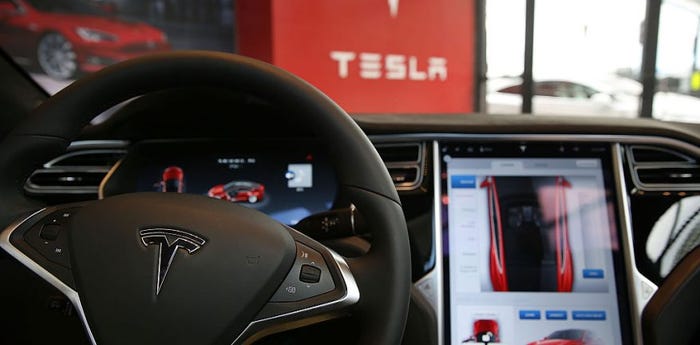Are Companies Poised to Capitalize on the Next Wave of Connected Consumer Products?

Consumers have a large and seemingly insatiable appetite for connected consumer products — from connected entertainment systems and connected vehicles to fitness trackers, health monitors and smart home services. Today 80% of consumers own at least one connected device and 37% of shoppers from around the world claim they will buy more connected products in the next 12 months.
For the past several decades, these products have redefined modern lifestyles. According to a report from Capgemini, 67% of consumers believe connected products are a necessity, making them feel safer, providing greater comfort and convenience, and improving health outcomes. In fact, one-third of consumers rely on a connected product almost 24 hours a day.
While the market for connected consumer products is hot, it is also crowded and requires companies to continually innovate to grow. Customer expectations continue to evolve, and developers of these new intelligent products and services can’t rest on their laurels. They will need to bring more convenient and personalized experiences while addressing ease of use, privacy, and security concerns. Companies that focus on a great customer experience and compelling business models are poised to drive share in this large and growing market.
Tap Into the Potential of Connected Products
We’re already seeing numerous brands excel in the intelligent product space. Above and beyond the consumer products industry which produces perhaps more traditional connected goods like smart toys, connected entertainment products and smart kitchen equipment, several sectors have embraced the intelligent era and successfully expanded their product portfolios. Retail, health care, travel and hospitality and automotive companies are among the leaders in this unfolding space — and showcase the immense business potential intelligent products can offer when properly produced and launched.
For example, world-renowned hospitality brands now famously utilize smart wristbands to allow guests access to their rooms, parks and amenities and payment methods. Countless automakers have produced thousands of vehicles in recent years with intelligent features like interactive dashboards that can sync with smartphone operating systems and apps to facilitate voice assistant capabilities. And retailers across the world are increasingly introducing connected products, like smart mirrors and self-checkout kiosks, to meet the expectations of their tech-savvy customers.
These use cases — and every other connected product made by enterprises across industries — prove the significance of intelligent goods in the future. Connected products serve as a gateway to new services, monetization opportunities, hyper personalization tactics and avenues to more first-party data. In other words, connected products have the potential to increase revenue, enhance efficiency and strengthen customer engagement and brand loyalty.
Acknowledge Consumer Concerns and Addressing Constraints
These business benefits have come to fruition for many successful brands who have figured out how to harness the power of technology and data to deliver great personalized customer experiences. Flashy tech capabilities aside, these smart devices are first and foremost consumer products. As such, companies must acknowledge consumer preferences and concerns and address these constraints when developing connected products.
Recent consumer research has found three key concerns every product, technology and business leader should be aware of:
Sustainability and e-waste – Today’s consumers are very environmentally conscious and they expect brands to be the same. Shoppers attest that companies’ sustainable practices will drive loyalty. When it comes to connected products, consumers expect devices to have smaller carbon footprints. They also want companies to responsibly dispose of product-related e-waste and help educate consumers to do the same.
Data privacy and security – Unsurprisingly, people around the world are growing wearier of what data companies collect and how they use this data. Most consumers are unwilling to share data and governments are increasingly stepping in to protect their citizens. This concern applies to product-related data, especially medical device data. Beyond data privacy, consumers similarly expect product companies to protect them while using intelligent devices.
Interoperability and updates – Consumers expect seamless experiences. They want all their connected devices to actually connect. Many consumers are calling for a single interface to integrate all devices. In a similar vein, consumers also state software updates and modular architecture are preferable to frequent hardware replacements and therefore also would lead to enhanced experiences and improved brand loyalty.
Improvements must be made across consumer, product and business fronts to address these demands. Transparently communicating consumer data practices; implementing security features and regulatory oversight; improving user experience, user design, interfaces and syncing capabilities; utilizing new revenue models; and adopting circular product life cycles, sustainable practices across business functions and e-waste processes are essential tactics. Brands now must be as equally bold as they are vigilant to win customers’ trust, loyalty, and purchasing power.
Unleash the Potential of Connected Products
In the next year, consumers will buy more smart devices and inevitably look to product companies to improve the way they live, work and play. This interest will lead to greater business benefits and outcomes, but it also will open a Pandora's box of complications and expectations if brands do not strategically develop and launch connected products with a customer-first mentality. Leaders across functions and industries can only unleash the potential of connected products if they deliver innovative, sustainable and secure solutions.
Competitors are waiting. Regulators are waiting. And more importantly, consumers are waiting to see the next generation of smart devices.
About the Author(s)
You May Also Like
.jpg?width=100&auto=webp&quality=80&disable=upscale)
.jpg?width=400&auto=webp&quality=80&disable=upscale)

.png?width=700&auto=webp&quality=80&disable=upscale)
.png?width=700&auto=webp&quality=80&disable=upscale)
.png?width=300&auto=webp&quality=80&disable=upscale)
.png?width=300&auto=webp&quality=80&disable=upscale)
.png?width=300&auto=webp&quality=80&disable=upscale)
